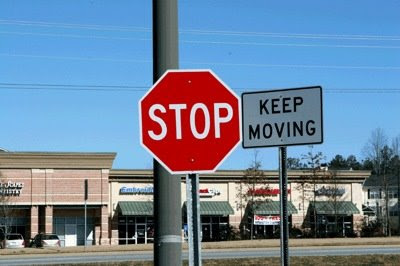GlobalView from Bishop Bill Atwood
There are many oddities of postmodernism. Some are interesting. Some are obnoxious. Some are—how can I say it delicately—simply nuts. What I find most frustrating about postmodernism is the wacky-doodle world of “it both is and isn’t at the same time.”
Maybe it is compartmentalization, whereby people have little dividers in their brains much like an ice cube tray that can be used to make individual cubes. For some people, it seems to work like this:
“What I do at work has no bearing on what I do at home. What I do with hobbies has no bearing on my family life. What I do at church has no bearing on anything outside church. In my church world, I have one set of values; in my business dealings, I have another. In my home group, I am one person, but with money or sexuality, I am someone else entirely. There is no integration.One area has no bearing on the other area.”
This kind of thinking has not only influenced academia, but in many institutions, it has taken over wholesale. These days, it is amazingly difficult to find objective or scientific thought in many of our colleges and universities, except perhaps in some physical sciences, and even the sciences have been invaded. Things like “Earth Science” are replete with “witch-hunt” zeal to root out dissent. Factual data that don’t support the “cause du jour” are not reported, or documents that are contrary to the party line are even destroyed. Most campuses have been over-populated with liberal postmodernists, but not the warm-fuzzy kind. They are more like the Nazi kind, who are intolerant of any disagreement. All kinds of fields have been redefined to support the new order of uncritical acceptance of the fantasy that has been promulgated by TV, films, print, and other media.
I could show you the exact spot I was passing on Highway 130 in New Jersey—right by a State Trooper barracks in Willingboro—when I heard an interview from the President of the Screen Writer’s Guild. It was winter, early in 1973. I don’t remember his name, but I remember what he said. It is one of the poster examples of “new speak.” The man being interviewed said, (I’m paraphrasing) “We are going to change the world, and we are going to do it by the scripts we write. We are going to write TV and film scripts that show homosexuals as sophisticated, lovely people. We are going to show Christians as bigots and buffoons. In a generation, that will be the accepted norm of the culture, and no one will even know what we did, or care.”
Sadly, they have been amazingly skilled and steadfast at their task, and an uncritical audience has swallowed the message “hook, line, and sinker.” Rarely are principled Christian people presented. If they are, as in Chariots of Fire, there is just enough of an eccentric twist to the person so as to render him or her an interesting anomaly — an exception, not a role model that should be emulated.
So we find ourselves some forty years later, with many things entrenched in the general population. The logical inconsistencies that abound in current culture threaten my head with explosion. They are wholeheartedly embraced by the postmoderns. For example, people will chain themselves to trees to try to stop de-forestation, or go into apoplexy over the “snail darter” species that is endangered by a hydroelectric plant. They voice concern for the “ecological disaster that might come if we mess with the balance of nature.” At the same time, those identical eco-zealots eagerly embrace the re-definition of marriage, dramatically altering the fundamental building block of civilization — marriage and family – and they do it without a second thought. Team Snail Darter has no concern that there might be unintended consequences that wreck people’s lives. A zealous commitment to defend the environment from consequences while ignoring the consequences of social and sexual behavior simply is not logical. It doesn’t work, and it shouldn’t go unchallenged. Same-sex attraction and activity are virtually always presented as what “gay” used to mean…carefree, happy, and beautiful. Never are the challenges reported in main stream media. Never do we hear the consequences of that behavior. Nonetheless, the toll is accruing, and a day of reckoning will come. By that I don’t mean a day of punishment. I mean that there will be a harvest of ill from behavior that is outside God’s design. The only way to be blessed is to do things His way.
We who seek to follow His way are not excused, however. We are supposed to be incarnational Christians. That means we engage the world with the transforming love of Christ—that we love the world and the people in it into wholeness. It means we should be able to love everyone, but it does not mean that the current superficial definition of “luv” must be accepted. The current cultural concept of “love” is to uncritically affirm people where they are and in whatever they do. Ironically, the only behavior that is culturally proscribed is conservative belief, which is usually re-defined as bigotry or hate.
For whatever faults society may have had in the past, the ways in which it has been ordered have actually delivered you and me to this planet, with more than seven thousand years of testimony that society’s best is for marriage to be between one man and one woman in a life long union. No more! Suddenly, in the space of a few decades, we are told that everything that went before was bad. It is only now, under the enlightened leadership of the postmodernists, that all things can be corrected.
Granted, the Church has not done a great job of welcoming people who sin. We have only specialized in welcoming people with certain sins. Others sins are much less popular, and the welcome much less robust. That is our failure. True understanding of Incarnation means more than living in the world. We are to love it into transformation. In order to try to drown out the gentle voice of the Holy Spirit’s conviction, many people seek the affirmation of the Church. Nowhere is that more evident than with same-sex behavior. That is why there is such a tremendous push for blessings from the Church. They are trying to find a different voice to drown out conviction’s inner witness that there is a better way.
The cultural pressure to give approbation to same-sex intimacy is understandable, but it is superficial. Frankly, it is unbelievable that the Supreme Court of the United States could be so utterly vapid in its arguments and bare majority decision. The majority justices have simply caved-in to the current culture, abandoning their role as justices weighing what the Constitution says. It is utterly astonishing that after more than two hundred and thirty years, five people have overturned the fabric of Constitutional law and societal design!
In the current pop culture, it is verboten to speak of the brokenness of same-sex behavior. Pundits want to speak only in lofty terms of friendship and commitment, but it is neither friendship nor commitment that is the problem; rather, it is same-sex sexual intimacy itself that is problematic. That is not a hateful judgment: it is a tragedy. A short time doing Google searches will reveal increased mortality rates and shortened life-spans. Same-sex domestic violence occurs at double the general population rate. Studies from the International Journal of Epidemiology show that life spans of homosexual males are eight to twenty years less than normal. HIV/AIDS infection is more than forty times as common in those active in same-sex relationships as in the general population. We need to care for people better than that! It is NOT loving to say, “Go ahead, Honey, do whatever you like, no matter what the consequences!” That is not love at all. The problem is that people who address the issue far too often are loveless in the way they speak. People with same-sex attraction deserve better. They deserve to have us love them well enough to be their genuine friends and then when we have won the right to have a hearing, challenge their behavior.
Who must speak, and say that there is a better way than the way things are? Today, only about 1% of “committed same sex relationships” are monogamous for even five years. I don’t have statistics for fidelity within the new phenomenon of same-sex marriages (though that definition is problematic), but I suspect the worst. This is NOT to say that heterosexual marriage is healthy everywhere. It is not. Particularly problematic is serial polygamy. It is small comfort that a huge percentage of the divorces that occur today among heterosexual couples are from those who have been married previously. That skews the statistics a lot, but that is not enough.
What is needed is good solid teaching about the nature of marriage and family. People in faith communities should hold each other accountable to live and love well.
Basically, we need to own a few principles and let them shape our conversation.
- We may be hard pressed by current events, but we are not destroyed or undone.
- Opposing same-sex intimacy is not hate; rather it can be genuine concern and love for the people involved.
- The Church needs to find its voice to love well enough to speak in the current culture.
- We need to own our own failures and sins, not over-judging some sins.
- We need to challenge the “settled science” that posits that same-sex attraction must be accepted because there is no choice involved. Where are the actual studies? More importantly, even if same-sex attraction is imposed rather than chosen, that does not mean that it must be affirmed. There are many things that are not good for people’s lives that should not be affirmed.
I understand it is difficult. The culture wants nothing as much as it desires affirmation. When we speak too soon, or—God forbid—harshly, we don’t help the situation. But because it is difficult doesn’t mean that we are powerless. We can love well and do so in the power of the Holy Spirit. We can serve people and demonstrate the love of Christ to them so well that we can win the right to speak into their lives. In fact, when we love well, people will often invite us to speak truth into their life.
The problems with our culture go far deeper than sexuality, though it is obviously the presenting issue for many of our struggles. Eventually, the train wreck that uncritical affirmation surely brings will certainly surface. When that day comes, the Church must be there with the same Gospel message of forgiveness and transformation. We are going through a patch of rough water. That doesn’t mean all is lost. Those who have bought into postmodernism don’t need disdain. They need Good News.
Are you willing to offer it if it requires hard work and costly sacrifice?
Bishop Bill Atwood is Bishop of the ACNA International Diocese and an American Anglican Council contributing author.



